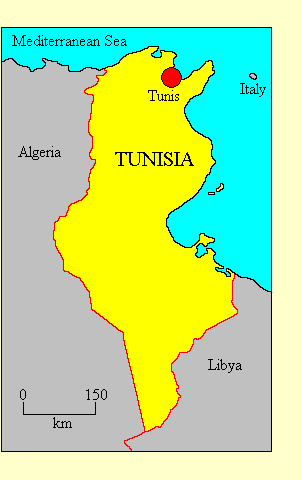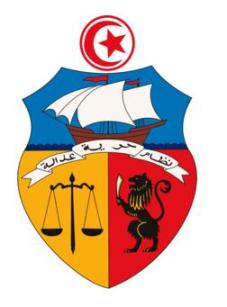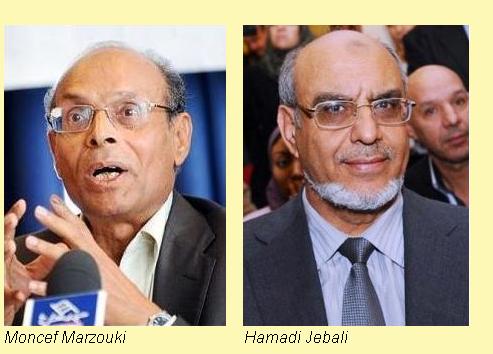

REPUBLIC OF TUNISIA
• Official name: Al Jumhuriyah at-Tunisiyah (Republic of Tunisia)
• Location: North Africa
• International organisations: African, Caribbean and Pacific Group of States, African Union,
Arab League, Non-Aligned Movement, Organisation Internationale de la Francophonie,
Organisation of Islamic Conference, United Nations, World Trade Organisation
• Borders: Algeria, Libya
• Coastline: Mediterranean Sea
• Land area: 163,610 Km2
• Population: 10,400,000
• Annual GDP (PPP) per capita: US$8,000 (2009 CIA estimate). World ranking: 97
• Ethnicity: Arab or Berber 98%, European 1%, other 1%
• Languages: Arabic is the official language and is widely spoken. Berber languages
are spoken in the interior. French is used in business and the media.
• Religion: Sunni Moslem 98%. There are small Christian and Jewish minorities.
• Form of government: Presidential democratic republic. Tunisia is divided into 23 governorates.
• Capital: Tunis
• Constitution: The Constitution of the Republic of Tunisia
came into effect on 1 June 1959. It was substantially amended on 12 July 1988. A new constitution will be drafted by
the Constituent Assembly elected in October 2011.
• Head of state: The President, elected by direct universal suffrage for a five-year term. Pending the first
presidential election, veteran human rights activist Moncef Marzouki
became interim President on 13 December 2011.
• Head of government: The Prime Minister, appointed by the President.
• Legislature: Tunisia has a bicameral legislature. The
Chamber of Deputies (Majlis
al-Nuwaab) has 189 members, of which 182 are elected for five-year terms from single-member
constituencies, with another 37 elected on a national proportional basis among parties which fail to win
single-member seats. The Chamber of Advisors has 126 members appointed or indirectly elected for six-year terms.
• Electoral authority: The government administers national elections.
• Freedom House 2011 rating: Political Rights 7, Civil Liberties 5
• Transparency International Corruption Index: 43% (59 of 178 countries rated)
• Reporters Without Borders Press Freedom 2010 Index: 27.5% (164 of 178 countries rated)
• Heritage Foundation Economic Freedom 2010 Index: 58.5% (100 of 179 countries rated)
All these ratings relate to the former Ben Ali regime
Political history
Tunisia was a province of the Ottoman Empire from 1573, but from the early 18th
century the Bey of Tunis was in practice an independent ruler owing nominal allegiance
to the Sultan. In 1869 the profilgacy of the Bey led to bankruptcy, and in 1878 Tunisia
became a French protectorate. Significant French and Italian settlement followed.

A nationalist movement developed after the World War II, led by western-educated
intellectuals such as Habib Bourguiba, whose Neo-Destour (Constitutionalist) Party
emerged in the 1930s. Tunisia was occupied in succession by the Vichy French, the
Germans and the Allies during World War II. Promises of postwar independence
were broken, and a revolt broke out in 1954.
Tunisia was then granted internal self-government, and became independent in
1956. Soon after the Bey was deposed and Bourguiba became President. He established a
one-party socialist state and held office with little opposition until 1987, when he was
deposed by his prime minister, Zine El Abidine Ben Ali.
Under Ben Ali Tunisia remained an authoritarian regime. Although he contructed an elaborate facade of constitutional
reform and parliamentary government, in practice he ruled as a dictator. He was elected to a fifth term against only token
opposition in October 2009.
In December 2010 discontent among unemployed youth and small traders developed into anti-government riots and then an
uprising. Ben Ali resigned and fled the country in January 2011. An interim government took power and Ben Ali's party was
dissolved.
Elections to a constituent assembly were held in October, and were generally accepted as free and fair. The
Ennahada (Renaissance), a moderate Islamist party, led by the veteran opposition figure
Rashid Al-Ghannushi, won the largest share of the vote but far from a majority. Secular and liberal parties, the largest being
the Congress for the Republic (CPR) and the Ettakatol
(Democratic Forum for Labour and Liberties or FDTL), were the next largest grouping. The Al Aridha (Popular Partition)
represents some members of Ben Ali's former regime. The Ennahada nominee,
Hamadi Jebali became Prime Minister on 24 December.
Freedom House's 2011
report on Tunisia
has been rendered out of date by the fall of Ben Ali's regime.
Updated November 2011
|

